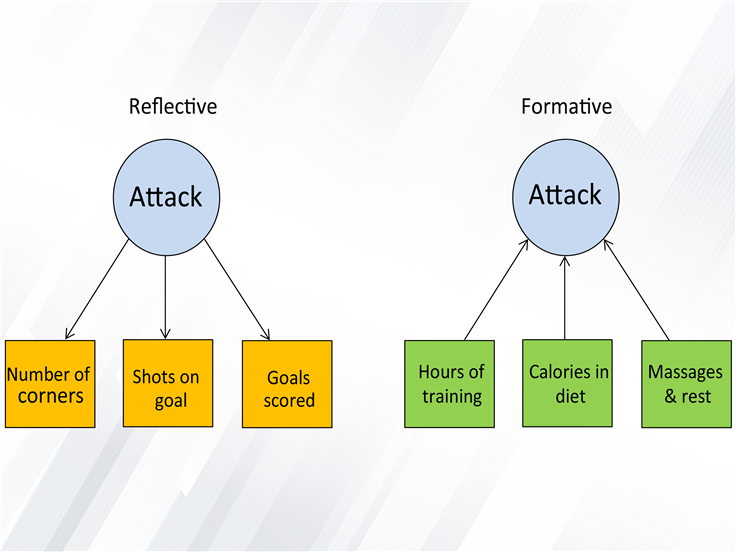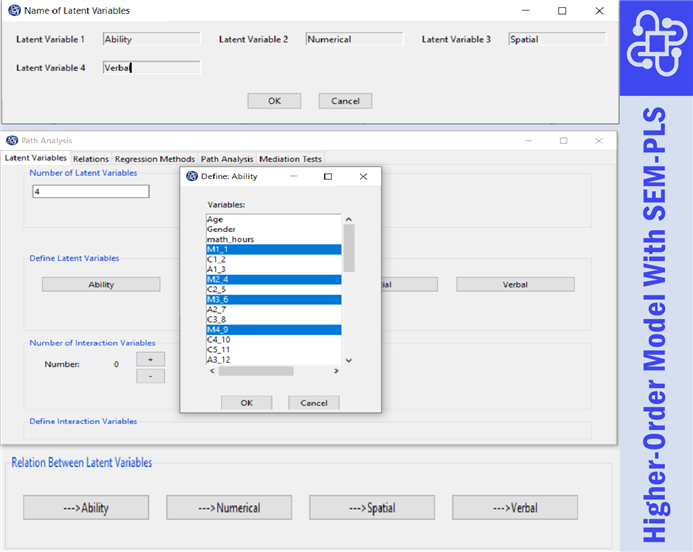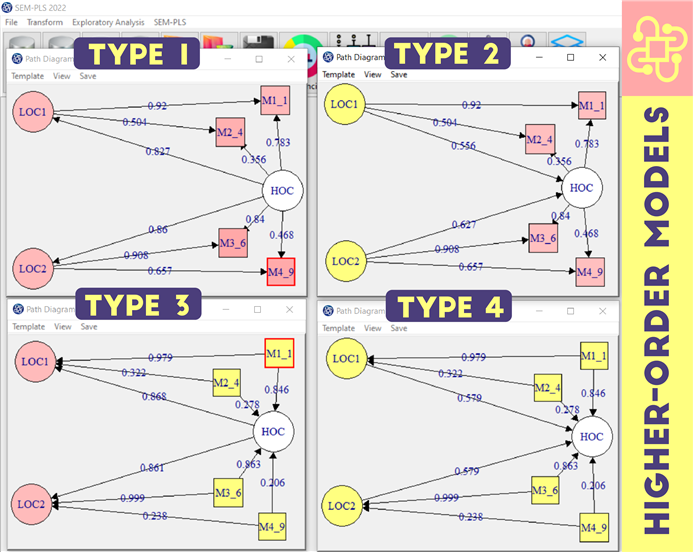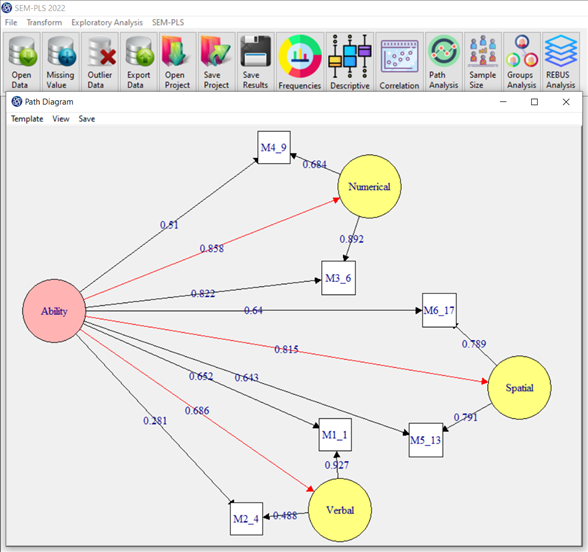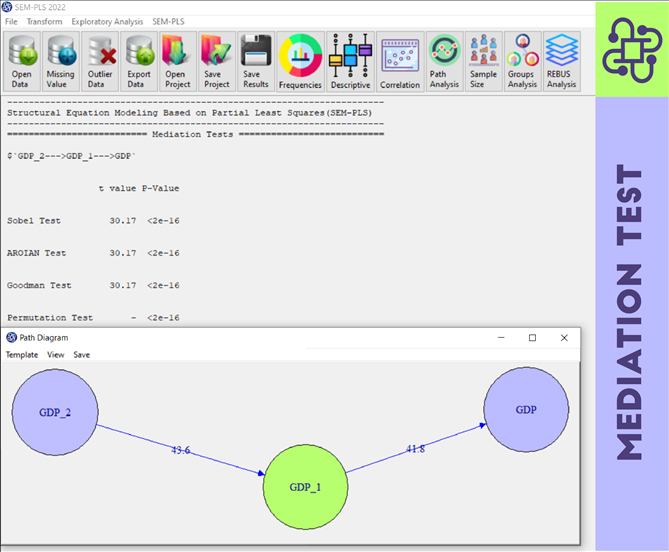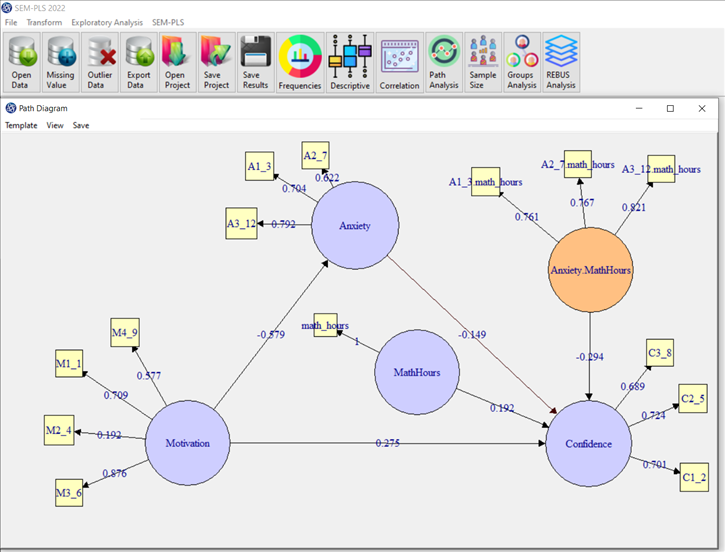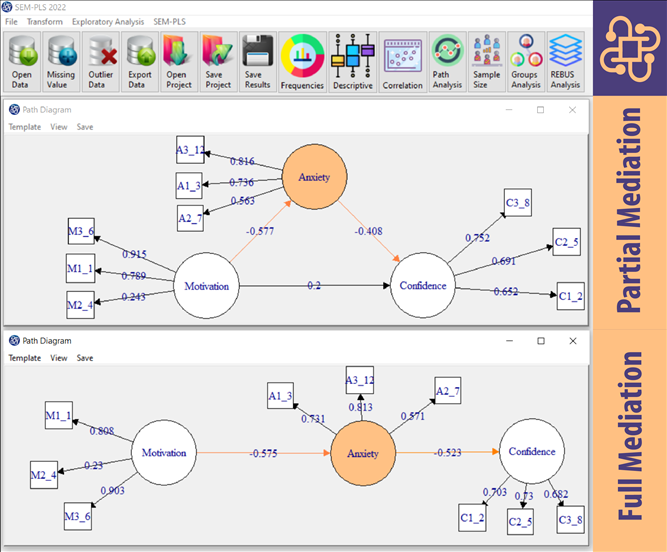Latent variables can be measured indirectly through the use of measurement variables. We need to consider how latent variables are indirectly measured(See Introduction to SEM-PLS: A. The Outer Model (The Measurement Model)). Latent variables can measure in two ways:
*Reflective: through their consequences or effects reflected on their indicators.
*Formative: through different indicators that are assumed to cause the latent variables.
The main difference between the reflective and formative ways is the causal-effect relationships between the indicators and the constructs. In the first case, called the reflective way, a latent variable is the cause of the measurement variables. The second case is formative because a latent construct is supposed to be formed by its indicators.
For example, suppose that a researcher is studying a team trying to measure its quality of attack. This variable can approach two ways:
*Via different statistics reflecting the attack(For example, Number of corners, Shots on goal, Goals scored).
*Via possible the factors affecting the attack(For example, Hours of training, Calories in diet, and Massages & rest).
Different effects might be evaluated, the number of corner shots in every match, the number of shots on goal, or the number of goals scored. These are typical indicators of how good or bad the attack of a team is. The researcher might ask about the hours of training in the field, the kind of food and the number of calories in the player's diet, or the amount of time receiving massages and resting periods. The statistics about shots and goals can be considered reflective indicators because they reflect the attack. Also, training and care-taking practices can be seen as formative indicators because they are thought to contribute to the quality of attack.
You can do these methods using the SEM-PLS software from the following path(See Path Analysis, D5):
SEM-PLS Path Analysis path,
Relation tab,
Measurement Mode button.
